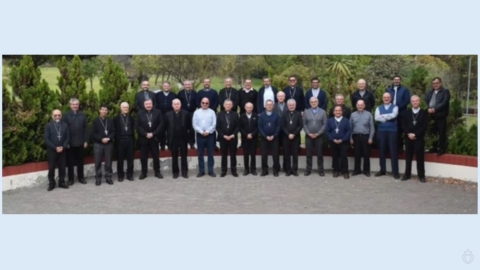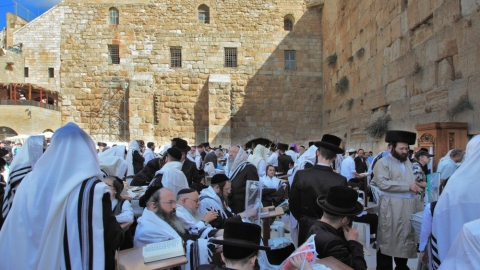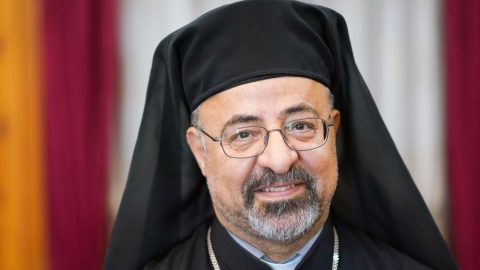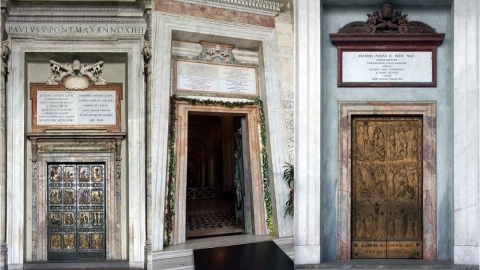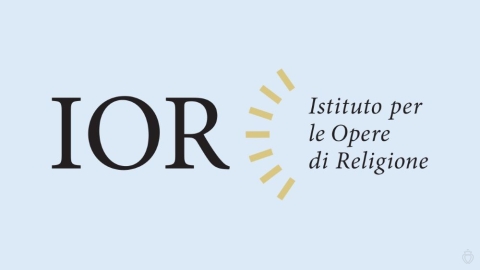The Pope’s Apostolic Visit to Cuba and the U.S., September 19-28, 2015

In Cuba, September 19-22
Pope Francis arrived in Havana on Saturday, September 19, and celebrated Mass there on the following day, Sunday, at the Plaza de la Revolución. Before going to the nunciature for lunch, Francis stopped at the nursing home where the 89-year-old former Cuban President Fidel Castro resides (on the picture). Father Federico Lombardi, director of the Press Office of the Holy See, insisted on the informal and “familial” (sic) character of this “30-to-40-minute” meeting. That afternoon he met with the current president, Raúl Castro, in the Palacio de la Revolución. Then he went to the cathedral for the chanting of Evening Prayer with priests, men and women religious, and seminarians, where in an extemporaneous homily he exhorted the priests not to “grow weary of forgiving, as Jesus did. Do not hide behind fears and rigid formulas. Like the nun and all the women who do her work, do not lose your temper when you find yourself face to face with a sick person who is dirty or smells bad.”
Cuban dissidents were prevented from meeting Pope Francis. Among them were the representatives of the “Ladies in White”, wives and relatives of dissidents who have been imprisoned by the government. Father Lombardi said that no meeting with opponents of the regime was scheduled.
On Monday morning, the 21st, the Pope traveled to Holguín, a port city in the southwest of the island and cradle of the Castro family, where he celebrated Mass on the Plaza de la Revolución. “I know at what cost of efforts and sacrifices the Church in Cuba works in order to bring to all, even to the most remote places, the word and the presence of Christ,” Francis concluded in his homily, saluting the role of the “mission stations which, given the lack of places of worship and priests, allow many persons to have a space for prayer, listening to the Word, catechesis, and community life.”
On Tuesday, September 22, the Supreme Pontiff celebrated Mass in the Minor Basilica of the Shrine of Our Lady of Charity, in El Cobre not far from Santiago. Our Lady of Charity was proclaimed patroness of Cuba on May 10, 1916, at the end of the war of national independence, by Pope Benedict XV. In his homily, Francis recalled “the sorrows and the privations that did not succeed in extinguishing the faith, this faith that has stayed alive thanks to so many grandmothers who continued to make possible, every day in their homes, the living presence of God.” In the hearing of President Raúl Castro, who was present, as he was also at the first Pontifical Mass in Cuba, the Pope exclaimed: “Like Mary, we want to be a Church that serves, that goes out of itself, that goes out of its temples, that goes out of its sacristies, to accompany [everyday] life, to sustain hope, to be a sign of unity of a dignified, noble people. Like Mary, the Mother of Charity, we want to be a Church that goes out of the house to set up bridges, knock down walls, and sow reconciliation.”
The Pope then met with families in the Cathedral of Our Lady of the Assumption in Santiago. The family, he declared, “saves us from two contemporary phenomena, two things that happen nowadays: fragmentation, that is, division, and the phenomenon of mass anonymity. In both cases, persons become isolated individuals, easy to manipulate and govern.” The family, the Pope insisted, is a “school of humanity that teaches ... (human beings) to be attentive to the lives of others.... Families are not a problem, they are first of all an opportunity... that we must preserve, protect and accompany.” After blessing the city, Pope Francis left Cuba to travel to the United States, to Washington, D.C.
In a 30-minute interview with journalists on the flight from Santiago de Cuba and Washington, D.C., the Pope was asked about the opposition to the Castro regime, the lifting of the American embargo on Cuba and also about the sufferings of the local Church, and several times he dodged the question. Francis said that he had not been informed of the fact that several dissidents had been arrested during his visit, some of them near the nunciature where he was staying. Two days after his meeting with Fidel Castro, the Pope confirmed the informal, spontaneous character of his visit, explaining that Castro had mentioned to him the Jesuit college in Havana where he had been educated, and had talked a lot about protecting the environment. To the question of whether he had spoken to Fidel Castro about the suffering of the Church when he was in power, the Pope replied, “We did not speak about the past.” Although he acknowledged that he might give the impression of being “a bit left-leaning” in his Encyclical Laudato sì or in talking about “economic imperialism”, the Argentine Pope assured the reporters that He was basically following the social doctrine of the Church.
In the United States, September 23-28
On Wednesday the 23rd, after the welcoming ceremony on the White House lawn with the President of the United States, Barack Obama (on the picture), the Pope met the American bishops in Saint Matthew’s Cathedral in Washington. Before addressing the prelates, the Pope saluted “our Jewish friends who today are celebrating the feast of Yom Kippur. May the Lord bless them with peace, and may He make them advance along the path of holiness, according to his Word: ‘Be holy, for I am holy’ (Lev 19:2). Reminding the bishops that “the heart of our identity is to be sought in constant prayer, in preaching (Acts 1:4) and in shepherding the flock (Jn 21:15-17; Acts 20:28-31),” the Pope cautioned them that “it is not about preaching complicated doctrines, but joyfully proclaiming Christ who died and rose for our sake”. Although he emphasized the American bishops are confronted with many challenges and that they are often on hostile territory, the Pope also denounced temptations “to give in to fear, to lick one’s wounds, to think back on bygone times and to devise harsh responses to fierce opposition.” He continued: “Dialogue is our method, not as a shrewd strategy but out of fidelity to the One who never wearies of visiting the marketplace, even at the eleventh hour, to propose his offer of love (Mt 20:1-16).... Harsh and divisive language does not befit the tongue of a pastor, it has no place in his heart.” The Pope finally insisted on the episcopal mission which is “first and foremost to solidify unity, a unity whose content is defined by the Word of God and the one Bread of Heaven. With these two realities each of the Churches entrusted to us remains Catholic, because open to, and in communion with, all the particular Churches and with the Church of Rome which ‘presides in charity’. It is imperative, therefore, to watch over that unity, to safeguard it, to promote it and to bear witness to it as a sign and instrument which, beyond every barrier, unites nations, races, classes and generations.”
Father Federico Lombardi remarked incidentally that the Pope has paid a short visit on the evening of September 23 to a community of the Little Sisters of the Poor in Washington. He explained that the purpose was to support them, since they are involved in a legal battle concerning the law on health insurance. This law, nicknamed Obamacare, obliges employers to provide health insurance that covers sterilization, abortion and contraception.
On Thursday the 24th, Francis appeared before the United States Congress, where he gave a speech to the Senate and the House of Representatives gathered in a joint session. The Pope asked them to remember the Golden Rule: “Do unto others what you would have them do unto you” (Mt 7:12), which, he explained, “reminds us of our responsibility to protect and defend human life at every stage of its development”. This has led him, since the beginning of his ministry, he said, “to advocate at different levels for the global abolition of the death penalty”, whereas 31 American States still have the death penalty. Pope Francis encouraged the United States in its “fight against poverty and hunger”, and he dealt at length with the question of protecting the environment, citing his Encyclical Laudato sì. The Supreme Pontiff did not hide his “concern for the family, which is threatened, perhaps as never before, from within and without. Fundamental relationships are being called into question, as is the very basis of marriage and the family,” the Pope exclaimed in the presence of the members of the Supreme Court who, this past June, authorized homosexual “marriage” throughout the United States.
On Friday morning, the 25th, the Supreme Pontiff gave a speech at the headquarters of the United Nations in New York to more than 150 heads of state gathered in a General Assembly. The Pope summarized the main message of his Encyclical Laudato sì, [the need for] a holistic ecology that cannot claim to protect nature without taking into account human development. Finally, the Pope expressed his opposition to gender theory, calling for the recognition of a moral law that is inscribed in human nature itself, which includes the natural distinction between man and woman. “Without this acknowledgment, the ideal of the Charter of the United Nations runs the risk of promoting ideological colonization through the imposition of abnormal models and lifestyles that are irresponsible and foreign to the identity of the world’s peoples,” he warned.
On Sunday the 27th, the Pope addressed the bishops who had been invited to the World Meeting of Families at Saint Charles Borromeo Seminary in Philadelphia: “As pastors, we bishops are called to collect our energies and to rebuild enthusiasm for making families correspond ever more fully to the blessing of God which they are! We need to invest our energies not so much in rehearsing the problems of the world around us and the merits of Christianity, but in extending a sincere invitation to young people to be brave and to opt for marriage and the family.... A Christianity which ‘does’ little in practice, while incessantly ‘explaining’ its teachings, is dangerously unbalanced.”
Commentaries in the press
In an interview granted on September 30 to Goffredo Pistelli for the daily newspaper Italia Oggi, and also posted on the website Riscossa Cristiana, Alessandro Gnocchi remarked that “the Church’s agenda is dictated by others. The problems are those of the environment, unemployment, and dealing with politics in terms of power. This Pope is doing exactly what the world has always been preaching. Consequently, the world supports him.” He stressed that three days after welcoming the Pope, “the American Senate rejected a proposed bill to prevent abortion after the twentieth week of pregnancy, a regulation which, according to Life News, would have made it possible to save at least eighteen thousand children each year.”
Sandro Magister concluded on his website Chiesa on October 1: “The true key political discourse of this journey [that the Pope made] to the Americas, in fact, was not the one he gave to Congress, nor the one from the podium of the U.N., both of these tailor-made to be welcomed by all and not to antagonize anyone, but the one in Philadelphia [on September 26 at Independence Hall], in the place, he said, where ‘the Declaration of Independence stated that all men and women are created equal, that they are endowed by their Creator with certain inalienable rights, and that governments exist to protect and defend those rights.’ These rights are life, liberty, and the pursuit of happiness, and therefore, he added, ‘our irreducible freedom in the face of every claim to absolute power’ and of all those ‘forms of modern tyranny [that] seek to suppress religious freedom, or try to reduce it to a subculture without right to a voice in the public square.’ The Vaticanist went on to lament: “What a shame that in Cuba these words of his were kept in the dark.”
(Sources : vis/vatican.va/ apic/italia oggi /trad. benoitetmoi/chiesa – DICI no. 322 dated October 9, 2015)
